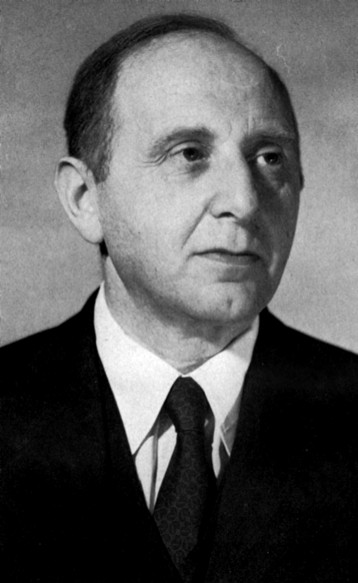| Profile | Major Works | Resources |
Simon Kuznets, 1901-1985.


The Russian-born Simon Kuznets left Soviet Russia in 1922, emigrating to New York. He became a student of Wesley Mitchell at Columbia and subsequently a researcher at Mitchell's National Bureau of Economic Research (NBER) in 1926. It was no surprise, then, that Kuznets took his master's creed to heart: that the painstaking collection of empirical data was a priority.
Kuznets's life work was the collection and organisation of the national income accounts of the United States (1934, 1941, 1946), an accomplishment that inspired that of Richard Stone and James Meade in Great Britain. Kuznets work fit hand in glove with two other developments at the time: the emergence of econometrics and the Keynesian Revolution, both of which found in Kuznets's data an important resource for their advancement.
Kuznets, however, was neither a Keynesian nor an econometrician. Instead, Kuznets took his methodological cues from Mitchell's Institutionalism, in particular the empirical analysis of business cycles. Kuznets (1930) identified a 15-20 year cycle to which his name was later attached, the "Kuznets Cycle".
Kuznets was also one of the earliest workers on development economics, in particular collecting and analyzing the empirical characteristics of developing countries (1965, 1966, 1971, 1979). His major thesis, which argued that underdeveloped countries of today possess characteristics different from those that industrialized countries faced before they developed, helped put an end to the simplistic view that all countries went through the same "linear stages" in their history and launched the separate field of development economics - which now focused on the analysis of modern underdeveloped countries' distinct experiences.
Among his several discoveries which sparked important theoretical research programs was his discovery of the inverted U-shaped relation between income inequality and economic growth (1955, 1963). Kuznets also discovered the patterns in savings-income behavior which launched the Life-Cycle/Permanant-Income Hypothesis of Modigliani and Friedman.
For all his patient yet crucial work, Kuznets won the Nobel Memorial in 1971. He was at Harvard at the time.
|
Major works of Simon Kuznets
|
|
HET
|
|
Resources on Simon Kuznets
|
All rights reserved, Gonçalo L. Fonseca
